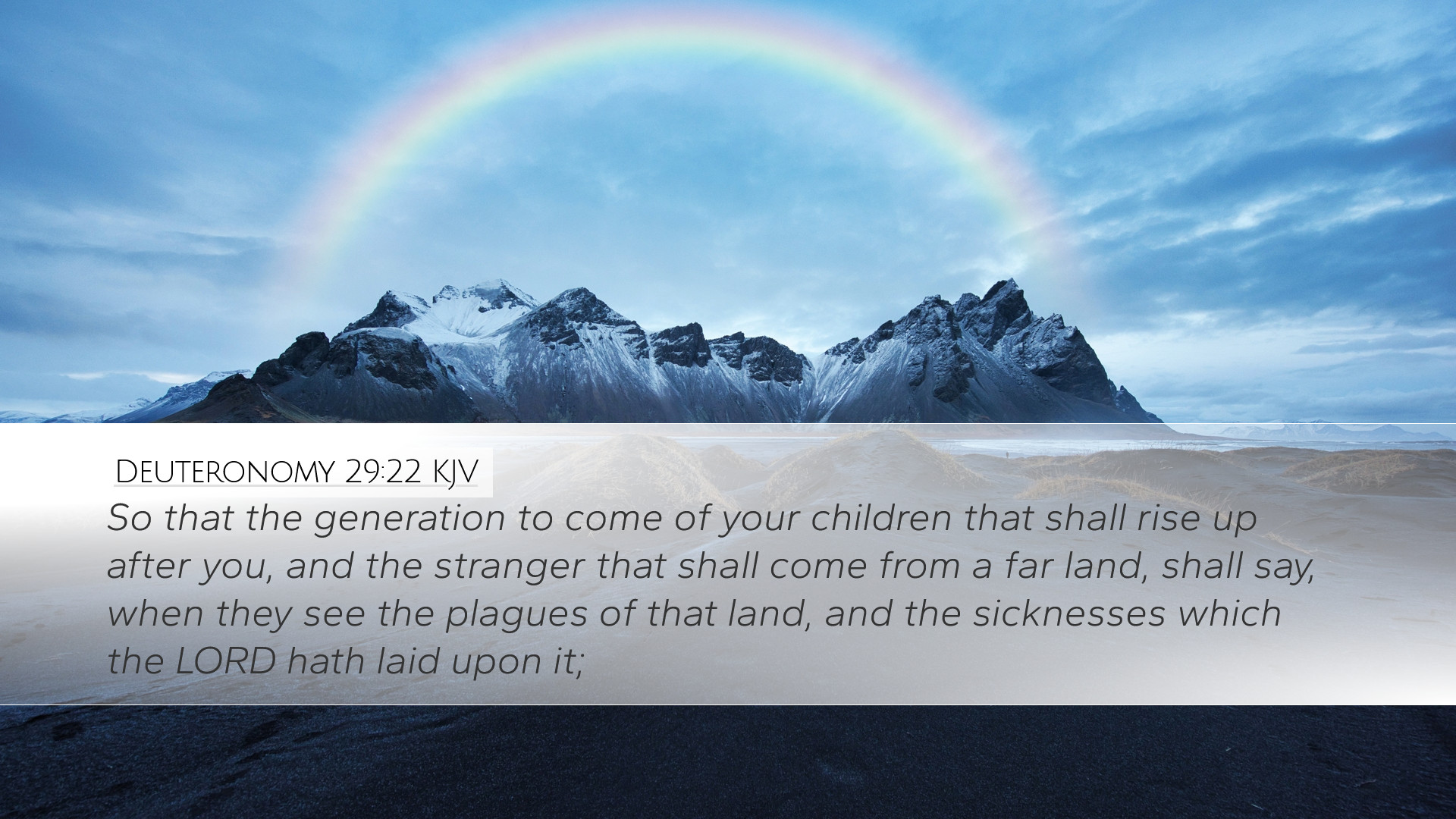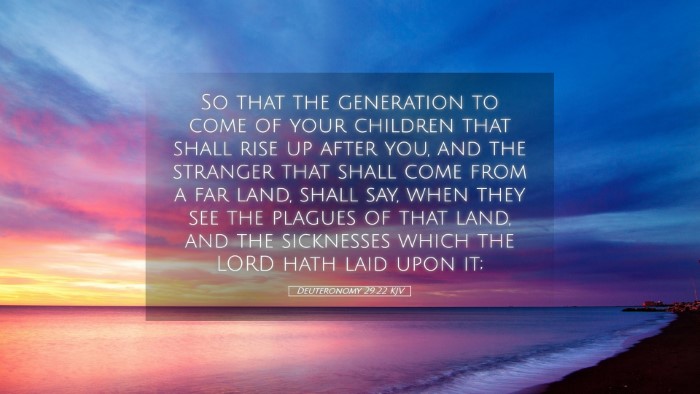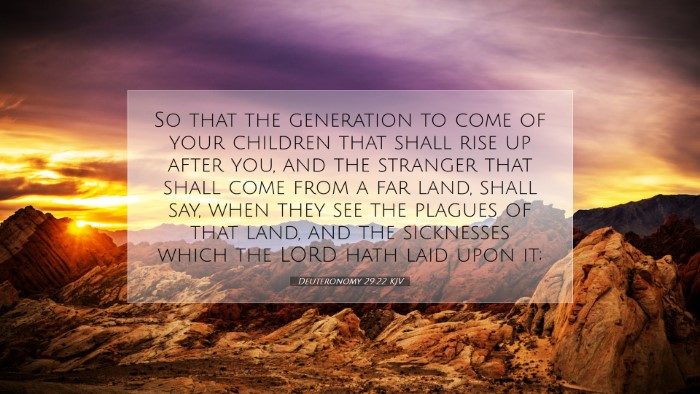Commentary on Deuteronomy 29:22
Deuteronomy 29:22 states:
"So that the generation to come of your children that shall rise up after you, and the stranger that shall come from a far land, shall say, when they see the plagues of that land, and the sickness which the LORD hath laid upon it."
Introduction
This verse falls within a covenant renewal context where Moses is reminding the Israelites of their unique relationship with God, as well as the consequences of disobedience and the mercy available to those who return to Him. It emphasizes the powerful witnessing effect of God's judgment and blessings on the generations to come.
Moses' Address to Israel
The broader context of this chapter is Moses’ farewell address, urging the people to remain faithful to the covenant. Matthew Henry notes that the mention of "the generation to come" highlights the importance of passing down spiritual truths to the future generations. This duty to convey the truth serves as a corrective thread running through the history of Israel.
Generational Understanding
As indicated, the observation of future generations is significant. Albert Barnes emphasizes that the children who rise up will recognize the severity of God’s judgments—the "plagues" and "sickness"—as manifestations of divine wrath against sin. This is not merely for the Israelites but also includes the "stranger" or foreigner, thereby illustrating that God’s dealings with His people are a witness to the world.
Lessons of the Past
Adam Clarke, in his analysis, suggests that the plagues referred to illustrate God’s justice and the severity of sin. Clarke notes that future generations will not only witness the consequences of the people's disobedience but will also learn about God's character and holiness through these judgments. The outward manifestation of God's judgment serves to teach the inward lessons of repentance and divine fidelity.
The Plagues and their Significance
The "plagues" represent both physical and spiritual afflictions. According to Matthew Henry, these serve as a reminder of the severity of God's displeasure against unfaithfulness. The tangible evidence of suffering invites reflection on the reasons behind such calamities, compelling the onlookers to consider their own relationship with God.
- Divine Warning: The plagues act as a warning to the Israelites and future generations about the seriousness of covenant disobedience.
- God’s Sovereignty: They serve to demonstrate God's ultimate control over creation and history, showing that all events are orchestrated under His sovereignty.
Witness to the Nations
The verse also emphasizes the role of Israel as a witness to the nations. Barnes highlights the significance of attracting the attention of outsiders—bringing forth an opportunity for them to witness God's dealings, which could lead to a greater understanding and acknowledgment of God’s power and holiness among non-Israelites.
This aspect is critical, as it reinforces the expectation that the faithful should be witnesses to the surrounding nations, revealing God's character through their lives and thereby bringing glory to His name.
Applying the Teaching
What implications can be drawn for pastors and theologians today? First, it is crucial to recognize the importance of teaching the coming generations about God’s faithfulness and His judgments. Each generation has the duty to remember and to pass down the knowledge of God's interactions with humanity.
Importance of Teaching
Henry and Clarke both stress the responsibility of the current generation to instill in children an understanding of God's laws and the consequences of forsaking His ways. Pastors can facilitate this process through:
- Biblical Teaching: Regularly teaching from both the Old and New Testaments to provide a comprehensive understanding of God's character.
- Witnessing Through Life: Living out a faithful Christian life that exemplifies obedience, thus providing a model for future generations to follow.
- Catechesis: Intentional discipleship programs that educate children and youth about their faith, incorporating the historical lessons from scripture.
Conclusion
In conclusion, Deuteronomy 29:22 encapsulates the serious duty of both understanding and communicating the nature of God's covenant with His people. Through the lens of judgment and mercy, this scripture calls us to reflect on the legacy we leave to future generations concerning their understanding of God's holiness, justice, and love. Pastors, theologians, and all believers are challenged to live lives that express faithfulness, ensuring that God’s truth continues to resonate long after they are gone.


